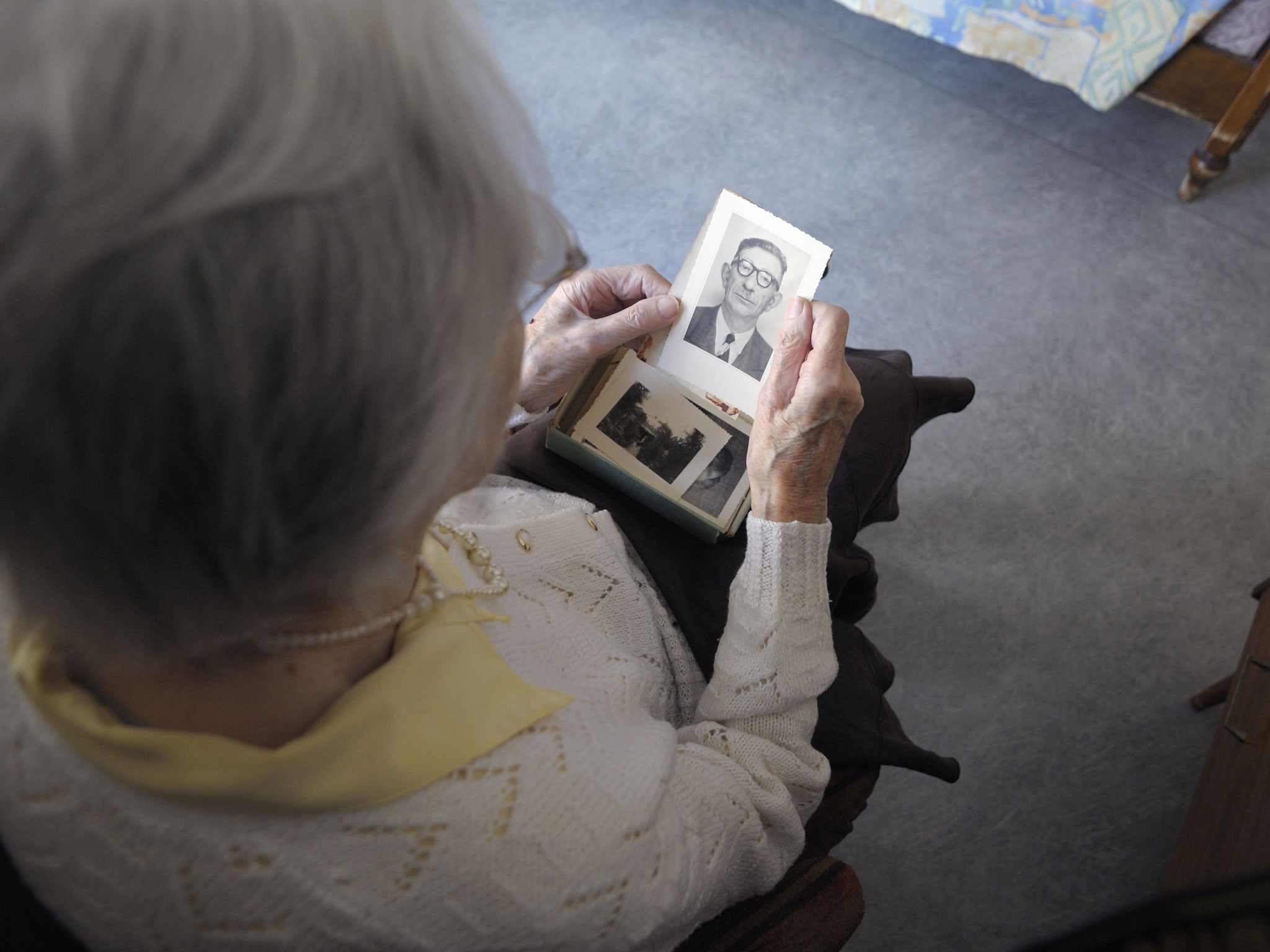Alzheimer's disease affects the ability to recognise faces, according to study
The disease impacts what is known as a person's "holistic perception"

Alzheimer’s disease affects a person’s ability to recognise faces, a new study has found.
No longer being able to identify otherwise familiar faces is a common symptom of the form of dementia.
Researchers hope that the findings will help loved ones understand why a person with the disease no longer knows who they are, and could help create treatments to postpone this painful sign of the disease.
The study is based on the idea that humans have evolved to have the faculty of holistic perception, or the ability to quickly identify a person by seeing their whole face.
Researchers at the University of Montreal found that Alzheimer’s disease affects holistic perception.
To make their findings published in the ‘Journal of Alzheimer's Disease’, the team compared how people with the disease and healthy older people were able to perceive faces and cars in photos that were upright or upside down.
The team found that both those with Alzheimer’s and the control group were able to identify upside-down images with relatively similar levels of accuracy.
“However, with the upright faces, people with Alzheimer's were much slower and made more mistakes than the healthy individuals,” said lead author Dr Sven Joubert, lead author of the study.
The seven Alzheimer's risk factors
Show all 7He added that participants with Alzheimer’s were able to recongnise upright cars, which does not require holistic processing, suggesting that the disease causes problems perceiving faces specifically.
Researchers found that even those with early stages of the disease experienced such symptoms.
Dr Laura Phipps of Alzheimer’s Research UK, said: "The inability to recognise loved ones can be distressing for both the person living with dementia and their family and friends. We know that in addition to memory difficulties, people with Alzheimer’s experience challenges with visual perception and this study highlights the impact of the disease on facial recognition.
"The research suggests that people with Alzheimer’s can have trouble building a visual picture of a face in their mind and this is not entirely driven by underlying memory problems. It’s important that researchers understand the complex symptoms that people with dementia experience, as this will help with diagnosis, symptom management and ultimately treatments.”
Dr James Pickett, Head of Research at Alzheimer’s Society, said: “As dementia develops, damage to the brain affects different parts that are dedicated to specific tasks, such as grammar, planning or finding your way around.
"This study suggests that difficulties people with dementia can have in recognising faces may not be solely due to memory loss, but also changes in the way that the brain visually processes faces. More work in this area may help us to improve therapies or activities to help people with dementia to maintain better connections with loved ones.”
Subscribe to Independent Premium to bookmark this article
Want to bookmark your favourite articles and stories to read or reference later? Start your Independent Premium subscription today.

Join our commenting forum
Join thought-provoking conversations, follow other Independent readers and see their replies